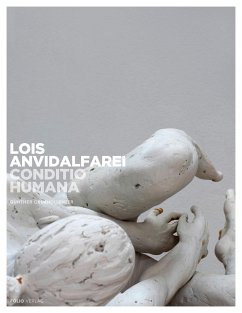
Freiheit - Gleichheit - Menschlichkeit
Versandkostenfrei!
Sofort lieferbar
32,00 €
inkl. MwSt.

PAYBACK Punkte
0 °P sammeln!
Von Paris auf die Bühnen der WeltJosephine Baker (geb. 1906 in St. Louis, Missouri, gest. 1975 in Paris) befreite sich aus Segregation und rassistischer Gewalt, indem sie 1925 nach Paris ging. Als Tanzerin, Sangerin und Schauspielerin eroberte sie von dort aus die Bühnen der Welt. Doch Baker war mehr als "nur" Tanzerin, Ikone und Star. Unermüdlich setzte sie sich für die Gleichberechtigung von Hautfarben, Geschlechtern und Klassen ein. Für ihre Lebensleistungen wurde sie 2021 als sechste und erste nicht-weiße Frau in die Ruhmeshalle Frankreichs, das Panthe on in Paris, aufgenommen und gi...
Von Paris auf die Bühnen der Welt
Josephine Baker (geb. 1906 in St. Louis, Missouri, gest. 1975 in Paris) befreite sich aus Segregation und rassistischer Gewalt, indem sie 1925 nach Paris ging. Als Tanzerin, Sangerin und Schauspielerin eroberte sie von dort aus die Bühnen der Welt. Doch Baker war mehr als "nur" Tanzerin, Ikone und Star. Unermüdlich setzte sie sich für die Gleichberechtigung von Hautfarben, Geschlechtern und Klassen ein. Für ihre Lebensleistungen wurde sie 2021 als sechste und erste nicht-weiße Frau in die Ruhmeshalle Frankreichs, das Panthe on in Paris, aufgenommen und gilt seitdem offziell als Nationalheldin.
Die Ausstellung Freiheit - Gleichheit - Menschlichkeit in der Bundeskunsthalle Bonn thematisiert, worauf der Erfolg Josephine Bakers gründet und wie sie das vermeintliche Stigma ihrer Hautfarbe in Starke verwandelte, indem sie ihren Ruhm nutzte, um andere zu befreien.
Der umfassende Katalog zur Ausstellung beleuchtet mit Essays vonAnnette Dorgerloh, Mona Horncastle, Yao Modzinou, Brygida Ochaim, Tracy Denean Sharpley-Whiting und Barbara Tannenbaum Bakers Wirken, ihren Einfluss als Freiheitskampferin und ihre Bedeutung für die LGBTQ+-Community. Der Katalog nimmt zudem eine tanzhistorische Einordnung vor und zeichnet das Paris der 1920er- und 1930er-Jahre als einen weltoffenen, progressiven Ort des Empowerment für (afroamerikanische) Frauen und kreatives Epizentrum Europas nach.
From Paris to the Stages of the World
Josephine Baker (b. St. Louis, Missouri, 1906; d. Paris, 1975) broke free from segregation and racist violence by going to Paris in 1925. From the French capital the dancer, singer, and actress soon conquered the stages of the world. Yet Baker was more than "merely" a dancer, icon, and superstar. She was also an indefatigable advocate of equality between people regardless of skin color, sex, and class. For her lifetime achievements, she was inducted into the Pantheon, the resting place of French national heroes, in 2021, the sixth woman and first nonwhite woman to receive this honor.
The exhibition Freedom-Equality-Humanity at the Bundeskunsthalle Bonn sheds light on what made Josephine Baker's success possible and how she turned the ostensible stigma of her skin color into a strength, using her fame to liberate others.
The extensive catalogue accompanying the exhibition, with essays by Annette Dorgerloh, Mona Horncastle, Yao Modzinou, Brygida Ochaim, Tracy Denean Sharpley-Whiting, and Barbara Tannenbaum, examines Baker's work, her influence as a champion of freedom, and her significance for the LGBTQ+ community. It also embeds her art in the history of dance and portrays the Paris of the 1920s and 1930s as a cosmopolitan, progressive place of empowerment for (African-American)
Josephine Baker (geb. 1906 in St. Louis, Missouri, gest. 1975 in Paris) befreite sich aus Segregation und rassistischer Gewalt, indem sie 1925 nach Paris ging. Als Tanzerin, Sangerin und Schauspielerin eroberte sie von dort aus die Bühnen der Welt. Doch Baker war mehr als "nur" Tanzerin, Ikone und Star. Unermüdlich setzte sie sich für die Gleichberechtigung von Hautfarben, Geschlechtern und Klassen ein. Für ihre Lebensleistungen wurde sie 2021 als sechste und erste nicht-weiße Frau in die Ruhmeshalle Frankreichs, das Panthe on in Paris, aufgenommen und gilt seitdem offziell als Nationalheldin.
Die Ausstellung Freiheit - Gleichheit - Menschlichkeit in der Bundeskunsthalle Bonn thematisiert, worauf der Erfolg Josephine Bakers gründet und wie sie das vermeintliche Stigma ihrer Hautfarbe in Starke verwandelte, indem sie ihren Ruhm nutzte, um andere zu befreien.
Der umfassende Katalog zur Ausstellung beleuchtet mit Essays vonAnnette Dorgerloh, Mona Horncastle, Yao Modzinou, Brygida Ochaim, Tracy Denean Sharpley-Whiting und Barbara Tannenbaum Bakers Wirken, ihren Einfluss als Freiheitskampferin und ihre Bedeutung für die LGBTQ+-Community. Der Katalog nimmt zudem eine tanzhistorische Einordnung vor und zeichnet das Paris der 1920er- und 1930er-Jahre als einen weltoffenen, progressiven Ort des Empowerment für (afroamerikanische) Frauen und kreatives Epizentrum Europas nach.
From Paris to the Stages of the World
Josephine Baker (b. St. Louis, Missouri, 1906; d. Paris, 1975) broke free from segregation and racist violence by going to Paris in 1925. From the French capital the dancer, singer, and actress soon conquered the stages of the world. Yet Baker was more than "merely" a dancer, icon, and superstar. She was also an indefatigable advocate of equality between people regardless of skin color, sex, and class. For her lifetime achievements, she was inducted into the Pantheon, the resting place of French national heroes, in 2021, the sixth woman and first nonwhite woman to receive this honor.
The exhibition Freedom-Equality-Humanity at the Bundeskunsthalle Bonn sheds light on what made Josephine Baker's success possible and how she turned the ostensible stigma of her skin color into a strength, using her fame to liberate others.
The extensive catalogue accompanying the exhibition, with essays by Annette Dorgerloh, Mona Horncastle, Yao Modzinou, Brygida Ochaim, Tracy Denean Sharpley-Whiting, and Barbara Tannenbaum, examines Baker's work, her influence as a champion of freedom, and her significance for the LGBTQ+ community. It also embeds her art in the history of dance and portrays the Paris of the 1920s and 1930s as a cosmopolitan, progressive place of empowerment for (African-American)
















![Mülheimer Freiheit [made in Cologne] Adamski - Bömmels - Dahn - Dokoupil - Kever - Naschberger (Deutsch) Cover Mülheimer Freiheit [made in Cologne] Adamski - Bömmels - Dahn - Dokoupil - Kever - Naschberger (Deutsch)](https://bilder.buecher.de/produkte/69/69088/69088990n.jpg)



